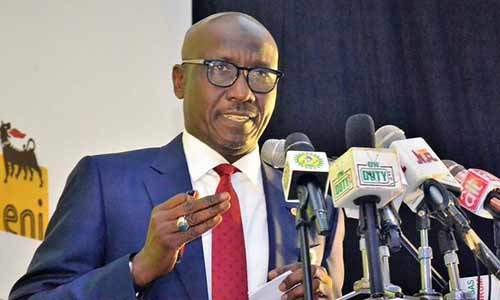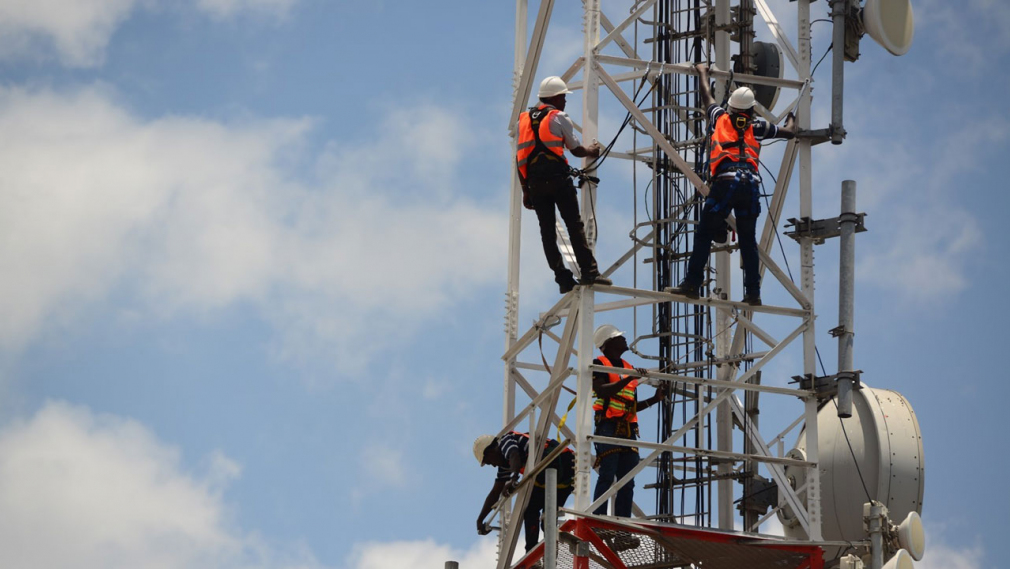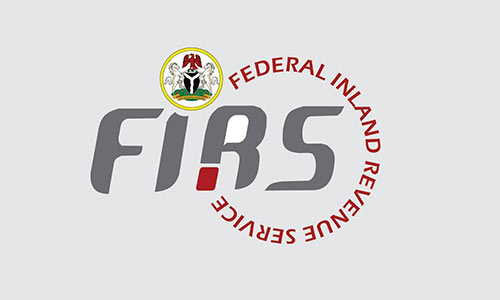OIL & GAS SECTOR INSIGHT 17/02/2022
Adulterated Fuel: NNPC Files Liquidated Damages Against Suppliers

The Group Managing Director of Nigerian National Petroleum Corporation (NNPC) Limited, Mr Mele Kyari, on Wednesday, disclosed that the Corporation has filed litigation against importers of the adulterated premium motor spirit (PMS) considering the impacts of the withdrawal of the products from the economy.
The NNPC GMD who disclosed this in Abuja, during the investigative hearing on the importation of adulterated Premium Motor Spirit (PMS) with Group Managing Director of Nigerian National Petroleum Corporation (NNPC) Limited held at the instance of the House of Representatives’ Committee on Petroleum Resources (Upstream), noted that the Corporation rejected additional five vessels of PMS imported into the country by the same company.
He said: “What did we do, we have put all our suppliers who are our contacts or commercial angle on notice that there would be liquidated damages that will come from this. And also it is a typical practice that we compile liquidated damages that the direct supplier didn’t cost, he will transfer that to the next person until it gets to the originating supplier, so it’s a back-to-back arrangement that is always done so that once you file on one of them it will get to the last one.
“I do not know how many people are in the chain, in this PMS supply business in one cargo you can have three sellers, you can have two, and you may also have only one. It is from further inquiry that will tell us from whose hands until it gets to us. Every one of them will transfer the liquidated damages to the last person until it gets to the originating supplier.
“This is what we are doing to see that these liquidated damages are settled and it is commercial process it is also a legal process and I know it is not as simple as sorting it out. What we did was to bring the originating terminal on the table and informed them that with these products that we received originated from their terminal did contained methanol.
“In the circumstance, this is the only validation we can do and the rest are commercial engagements that we have to follow through with our partners,” he said.
While giving updated on the efforts made so far to restore normalcy into the supply of PMS across the country, he said: “For this current situation, I assure you that we have taken every necessary step to restore supply into this country. We have placed orders significant enough for us to cross into March, with at least 2.1 billion litres of PMS in our custody.
“The situation you’re seeing today I can assure you that by next week it will vanish. All things being equal because of distribution issues that we may not have control over including the movement of trucks, otherwise, we have a robust supply arrangement to make sure that we exit this issue.
“Why do we have this challenge? First of all, we import all the gasoline we use in this country, every petroleum product we use in this country is not locally processed except a few quantities, some of them I can also share with you are coming from sources that may not be illegitimate.
“Not a single litre of PMS is generated in the country, that means 100 per cent of PMS you see in this country is imported. Those imports are done on the basis of existing contractual arrangements that we have.
It’s called the Direct Sale Direct Purchase process, which is simply with the best of practice to enable our suppliers’ supply products to us on agreed terms and conditions.
“We have been doing this since I came on board and it’s part of our supply mechanism. Even if all our refineries comes up today, exceptDangote refinery we will still be in short supply of PMS, because all of our refineries can only make 18 million litres of gasoline. Consumption is certainly above 18 million litres.
“Evacuation from depots, we know all the trucks that leave our depots, but we do not know where they end up. This is reality, there is no tracking mechanism to enable this. We also know that some of these products find their way in places that may not be in this country. I don’t have statistics to back this up, but I’m sure smuggling takes place.
“On the basis of those contracts our suppliers bring products to us and reconcile with them regularly. Part of those supply arrangements is to give specifications to your suppliers. These specifications are bound by regulation and the latest that we are using is the one that is in place since 2006. The current specification we have is what is the subject of all our import arrangements. So all our partners were given those specifications and on the basis of this, those imports were made.
“Before a vessel leaves the load port, they have to declare that those vessels meet our specification, they will send it to COMD, the importer and confirm that this is the specification to do, this product that we are bringing to you meets this specification. On the basis of that, you allow the sail away of the vessel.
The NNPC helmsman who affirmed that the Corporation did not have the premonition of the adulterated fuel, said: “We didn’t know until our inspecting agents on 20th of January to be precise called our attention to the fact that it has seen emulsification in some of the depots and this maybe a cause of concern. That is how we went ahead to check all the deliveries in our hands from all the four vessels that came that have already been discharged and to confirm that all of them contain methanol.
“We quarantine all the volumes wherever they are in depots, transit we were able to track them, we were able to trace all of them and quarantine them,” he noted.
Some of the lawmakers who spoke during the hearing frowned at the poor handling process, quality assurance, insurance payment on the affected cargoes, financial implications on the economy and the common man of this country,
While responding, Mr Kyari said: “This is the point they (suppliers) are making and I have also said that we did not test for methanol both at the load port and by the NNPC and the regulatory authority; I was very clear on this. What they are saying is that ‘what I brought met your specification.’
“But what they probably also did not know is that it contained methanol and that methanol originated from the loading terminal. I think it is very good to put this in perspective. It is a legal issue but it is nowhere sustainable because we have also filed liquidated damages which they can pass on until it gets to the originating depot.
“We are not saying they know but what we are saying is that they are commercial partners of record that we have and it is their duty to transfer those liabilities to the origin of this product. This is really what we are saying and it is good to put this on record. It is a basic requirement now that no one will bring any product that contains methanol.
“On whether the cargoes had insurance, in typical practice, it is the cargo itself that you are insuring; you are not insuring the quality. It is expected that the partner will meet those requirements. It is part of the requirements of the transaction. We have no burden of insurance on this cargo as long as it arrives at our terminal.
“So, we have no need of insuring those cargoes coming to Nigeria; it is the suppliers’ burden to insure them. We only accept from them once they arrive and clear notice of readiness to discharge to us. I was very clear during my first media review and let me also repeat, again, for this purpose: first, we did not know that this product contained methanol.
“We absolutely did not know and your investigation will give you the reality at the end of the tunnel. Once you have this situation and you withdraw volumes in the market, you will have supply disruption and it comes with consequences.
“We are very conscious of the consequences that will come with it – the queues that you are seeing, the disruption of the economic activities that are very obvious and the liquidated damages that can be a legal process where you may not even be able to recover your possession.
“So, we are aware of this. We regret this situation and it is completely unavoidable. We didn’t see it coming. I have apologised to Nigerians that we didn’t see it coming.”
Speaking earlier, Chairman, House Committee on Petroleum Resources Downstream, Hon Abdullahi Gaya, expressed displeasure over the scourge of current fuel scarcity which has a negative impact on the people and the economy.
“As we are all aware, fuel queues have recently caused gridlock in most of our major cities affecting traffic movements. Some fuel stations are locked while the few that are open have long queues of motorist waiting to buy fuel.
“This situation is not different in the capital city, Abuja, and our major cities where the majority of filling stations are shut and Motorists spent hours in the sun struggling to buy from few that are open.
“It is a fact that this problem is as a result of the importation of adulterated premium motor spirit (PMS) which is confirmed to have a high percentage of methanol.
“Even though methanol is a regular additive in petrol but it is usually blended to acceptable quantity. The recent supplies are in excess of this additive of which its resultant consequences are injurious to our fragile economy and the generality of our citizens.”



